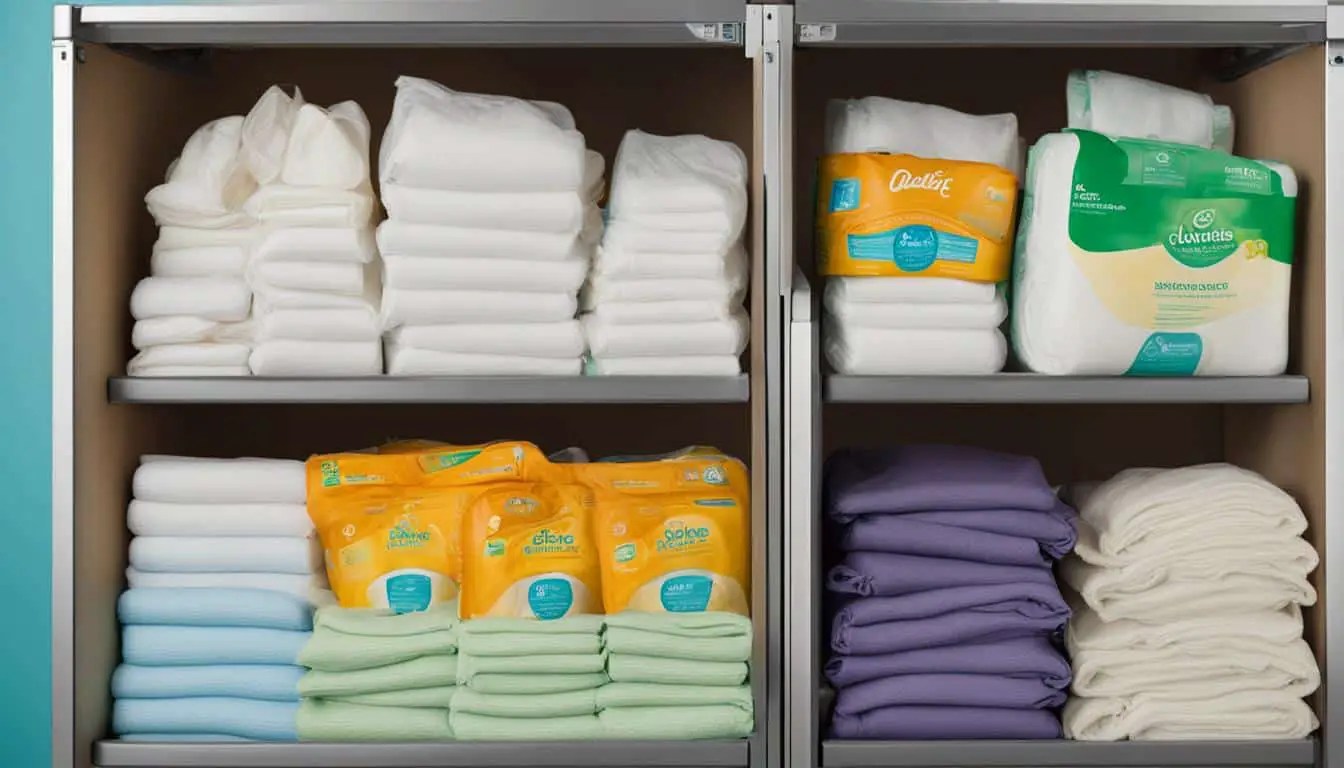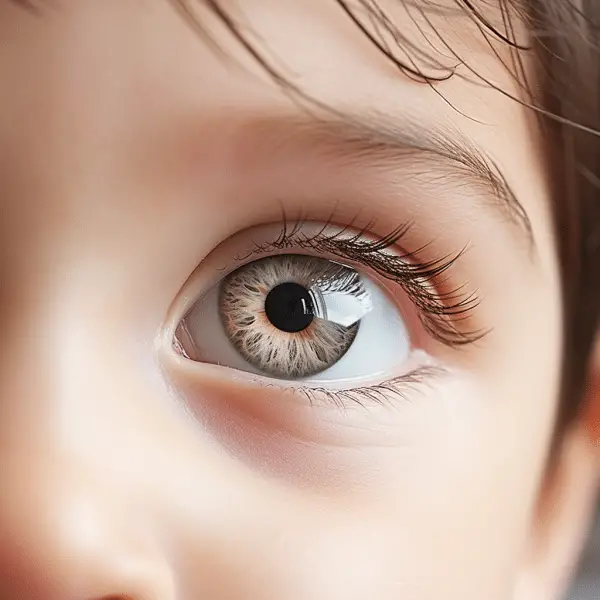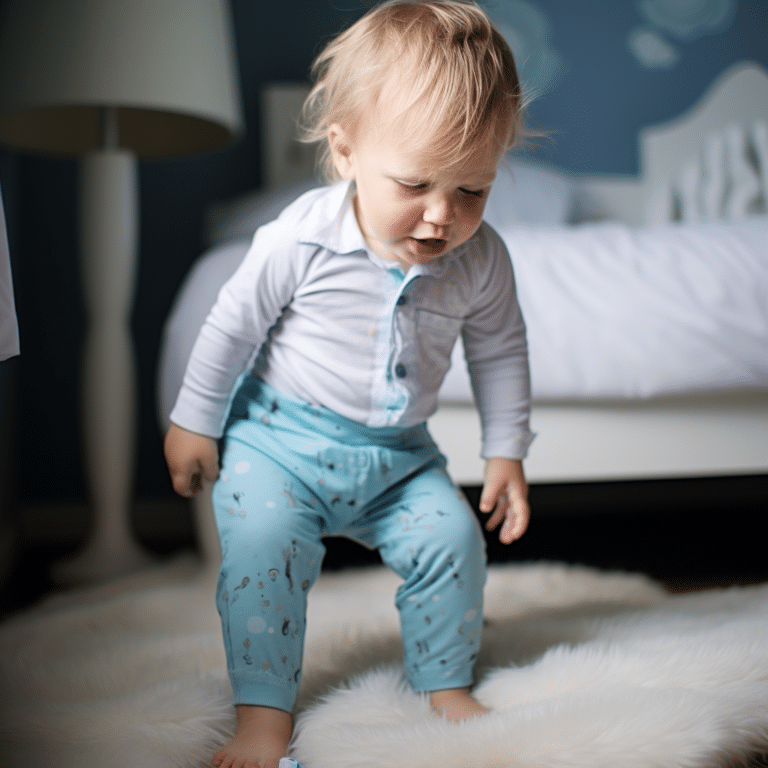Cloth vs. Disposable Diapers: What’s Best for Your Baby?
When it comes to choosing between cloth diapers and disposable diapers for your baby, there are several factors to consider. While disposable diapers are more commonly used due to their convenience, cloth diapers have their own advantages such as being cost-effective and potentially causing fewer diaper rashes. It’s important to weigh the pros and cons of each option to make an informed decision for your family and baby.
Key Takeaways:
- Cloth diapers are cost-effective and may cause fewer diaper rashes.
- Disposable diapers are more convenient and travel-friendly.
- Both cloth and disposable diapers have an impact on the environment.
- Alternating between cloth and disposable diapers can be a compromise for environmental concerns.
- Consider your baby’s needs and your family’s preferences when choosing between cloth and disposable diapers.
Pros and Cons of Cloth Diapers
When it comes to choosing the best diapering option for your baby, cloth diapers offer a range of advantages and disadvantages. Understanding the pros and cons can help you make an informed decision that suits your family’s needs.
Pros of Cloth Diapers
1. Lower Total Cost: One of the major benefits of cloth diapers is their cost-effectiveness. While the initial investment may be higher, cloth diapers can save you money in the long run. With proper care, they can be reused for multiple children or resold, reducing the need to purchase disposable diapers repeatedly.
2. Less Irritation: Cloth diapers are generally made from natural fibers like cotton or bamboo, which are gentle on a baby’s delicate skin. This can reduce the likelihood of diaper rashes and other irritations caused by chemicals and synthetic materials found in disposable diapers.
3. Bridge to Potty Training: Cloth diapers can serve as a useful tool in potty training. The increased awareness of wetness that comes with cloth diapers can make it easier for your child to recognize their need to use the toilet, potentially leading to earlier potty training success.
4. Less Trash: Choosing cloth diapers means contributing less waste to landfills. By opting for reusable diapers, you can help reduce the environmental impact associated with disposable diapers, which can take hundreds of years to decompose.
Cons of Cloth Diapers
1. More Laundry: Cloth diapers require regular washing, which means more laundry for parents. This can be time-consuming and may require extra effort, especially considering the frequency at which diapers need to be changed.
2. Potential for Diaper Rash: If cloth diapers are not changed frequently enough, they can create a moist environment that may increase the chances of diaper rash. It’s important to ensure that cloth diapers are changed promptly to avoid this issue.
While cloth diapers offer numerous benefits, it’s important to consider your lifestyle, budget, and personal preferences before making a decision. Now, let’s take a closer look at the pros and cons of disposable diapers in the next section.
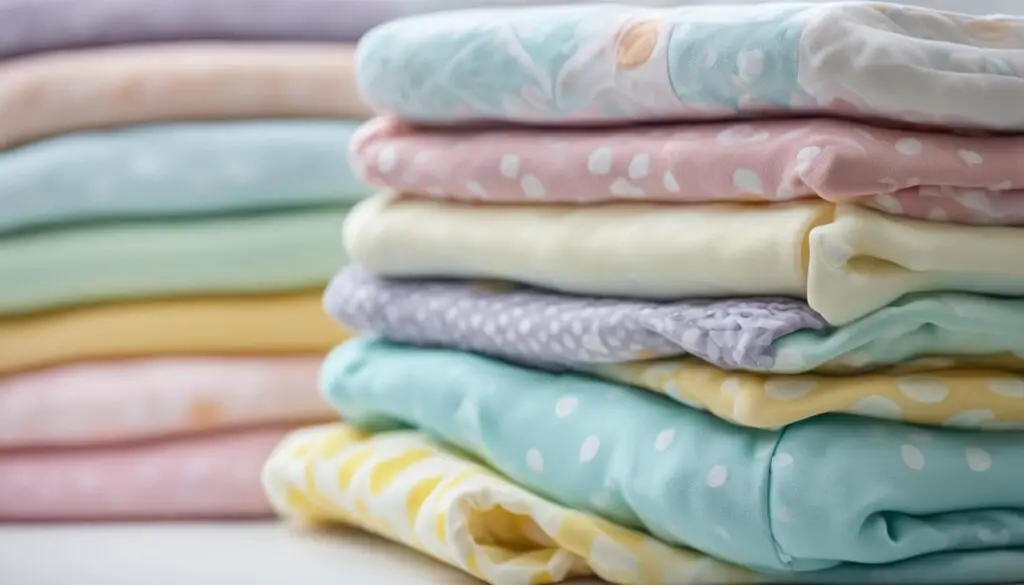
Pros and Cons of Disposable Diapers
Disposable diapers have become the go-to choice for many parents due to their convenience and ease of use. They offer several advantages that make them a popular option for busy families. Here are some of the pros and cons of using disposable diapers:
Pros:
- Convenience: Disposable diapers are incredibly convenient, especially for parents who are always on the go. They are ready to use straight out of the pack, eliminating the need for washing and folding.
- Fewer daily diaper changes: Disposable diapers are highly absorbent, which means they can hold more urine and feces compared to cloth diapers. This results in fewer diaper changes throughout the day, saving time and effort.
- Easier on the go: Disposable diapers are travel-friendly and make outings with your baby more convenient. The disposable nature allows for easy disposal, reducing the need to carry soiled diapers with you.
Cons:
- Potential skin irritation: Some babies may experience skin irritation or diaper rash due to the chemicals and materials used in disposable diapers. It’s important to choose diapers with hypoallergenic properties and change your baby’s diaper frequently to minimize the risk of irritation.
- More expensive over time: Disposable diapers can be more expensive in the long run compared to cloth diapers. With frequent diaper changes and the need to constantly buy new packs, the costs can add up, especially for families on a tight budget.
When considering disposable diapers for your baby, it’s important to weigh the convenience they offer against the potential drawbacks. Every baby is different, and what works for one may not work for another. It’s essential to choose diapers that suit your baby’s needs and prioritize their comfort and well-being.
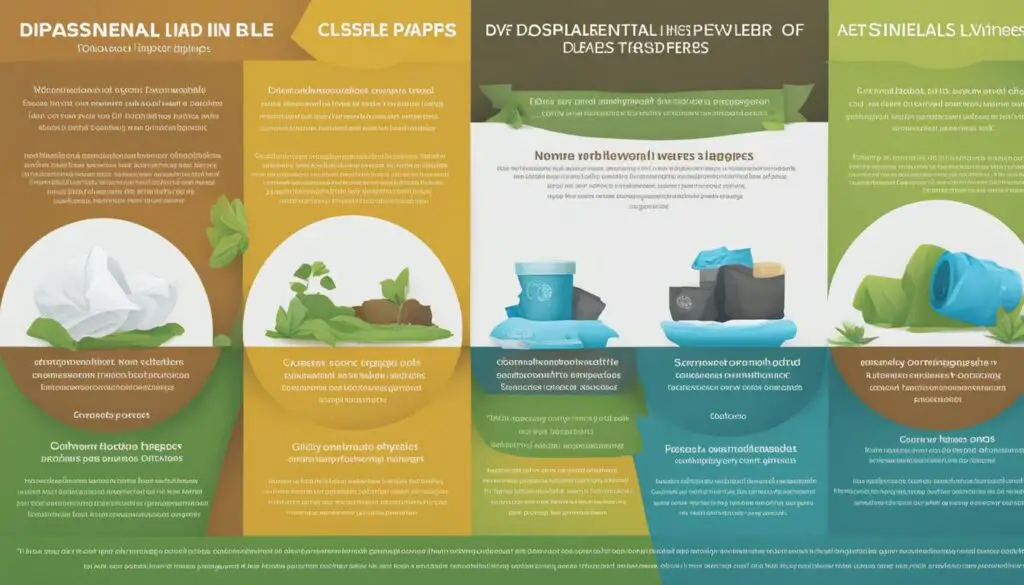
The Environmental Impact
When it comes to considering the environmental impact, both cloth diapers and disposable diapers have their pros and cons.
Disposable diapers contribute significantly to landfill waste, with an alarming estimated 3.5 million tons per year in the United States alone. These diapers take years to decompose, posing a long-term environmental challenge. On the other hand, cloth diapers require more water and energy for washing, which can contribute to overall usage. Additionally, the process of washing cloth diapers produces waterborne waste.
While the superiority of one option over the other remains debatable, there are efforts being made to address the environmental concerns associated with both types of diapers. Some communities have implemented recycling programs for disposable diapers, aiming to reduce their impact on landfills. Meanwhile, cloth diapers made from sustainable materials like bamboo are considered more eco-friendly.
For those concerned about the environment, a compromise can be alternating between cloth and disposable diapers. This approach allows for reducing landfill waste while also minimizing the water and energy usage associated with cloth diapers. By making an informed decision and considering the long-term environmental impact, parents can make a positive contribution to the planet’s health.
FAQ
Are cloth diapers more cost-effective than disposable diapers?
Yes, cloth diapers are typically cheaper in the long run and result in lower total costs.
Do cloth diapers cause fewer diaper rashes?
Cloth diapers may cause fewer diaper rashes for some babies as they require more frequent changes.
Are cloth diapers easier for potty training?
Yes, cloth diapers can potentially make potty training easier.
Do cloth diapers reduce trash compared to disposable diapers?
Yes, cloth diapers can reduce the amount of trash generated.
Are disposable diapers more convenient to use?
Yes, disposable diapers are easy to use, require fewer daily changes, and are more travel-friendly.
Do disposable diapers keep the baby’s skin dry?
Yes, the absorbent technology in disposable diapers keeps the baby’s skin dry and reduces the likelihood of leaks.
Can disposable diapers cause skin irritation?
Some babies may experience skin irritation due to the chemicals and materials used in disposable diapers.
What is the environmental impact of disposable diapers?
Disposable diapers contribute to landfill waste, with an estimated 3.5 million tons per year in the United States alone.
What is the environmental impact of cloth diapers?
Cloth diapers require more water and energy for washing and produce waterborne wastes.
Are there eco-friendly options for both cloth and disposable diapers?
Some communities have started recycling disposable diapers, and cloth diapers made from bamboo are considered more eco-friendly.
Is there a compromise for those concerned about the environment?
Alternating between cloth and disposable diapers can be a compromise for those concerned about the environment.
